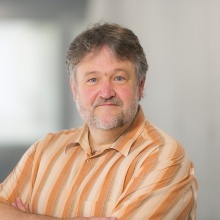The German Research Foundation (DFG) has approved a new priority program on the topic of 'Daring More Intelligence - Design Assistants in Mechanics and Dynamics'. The priority program, in which around 20 research groups from mechanical engineering, mathematics and computer science are working together in an innovative research project throughout Germany, is coordinated by Prof. Peter Eberhard, Participating Researcher in SimTech from the Institute of Engineering and Computational Mechanics at the University of Stuttgart. The mechanical engineer from Stuttgart is delighted about this recognition, which is also based on work carried out as part of his research activities in the Stuttgart Cluster of Excellence 'Data-integrated Simulation Science (SimTech).
In order to meet future customer requirements, new regulations and social responsibility, but also to make optimal use of the possibilities offered by new types of systems with components based on artificial intelligence (AI), the system design of the future must be multidisciplinary. This can only be achieved by highly automated design processes in which numerical optimization strategies take over the search for best compromise solutions, analysis methods from completely different disciplines are integrated for system evaluation, and AI-supported algorithms perform an objective evaluation of system behavior and design decisions. The SPP will combine state-of-the-art methods of optimization and AI research with the latest analysis methods of engineering dynamics to design design assistance systems of the future at the boundary between engineering, mathematics and computer science. Based on a variety of applications, sample processes will be developed and the advantages of such an approach will be demonstrated in order to initiate a sustainable paradigm shift in the industrial design process and to replace the current analysis-centric process with a criteria-driven design. This should result in design assistance systems that can be combined in modules and that equip engineers with an artificial intuition that complements their own specialist knowledge in order to be able to survive in the field of tension of structural change, shorter development cycles and increasingly interdisciplinary challenges. Criteria that have only been taken into account at a late stage in previous design processes can be taken into account in early design phases using assistance systems, which can contribute to better results and shorter development times.
The design of technical systems is one of the most demanding creative achievements in the engineering field, whereby computer support is currently mostly limited to system analysis. In often interactive development processes, time-consuming parameter studies are carried out and simulation results are evaluated by eye in order to manually make promising changes to the current design based on one's own expert knowledge. The result is then often declared as optimal, which seems doubtful: (i) In general, the evaluation is based on unclear subjective rather than mathematical criteria; (ii) The human inability to recognize correlations in higher-dimensional design spaces as well as time constraints in the industrial development process prevent the achievement of an optimum; (iii) Last but not least, the expertise of a design engineer is usually limited to only a few sub-disciplines.
Due to the analytical methods brought to maturity in the last decades, the enormous increase in computing power and the impressive progress in research, for example in the field of machine learning, now is the ideal time to develop design strategies that were unthinkable just a few years ago. Mechanics and dynamics, as centuries-old links between engineering and mathematics, are the ideal topics here to open up a new research direction for mechanical engineering through this SPP and challenging new fields of application for optimization and AI research with as yet unexploited potential, in particular in the use of creative intelligence in design decisions.


